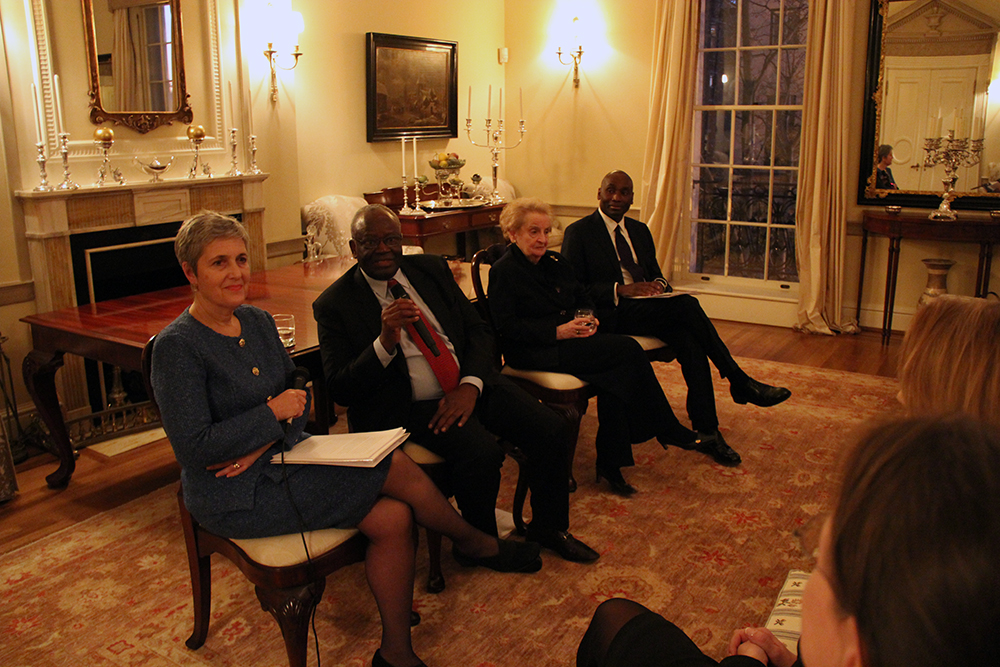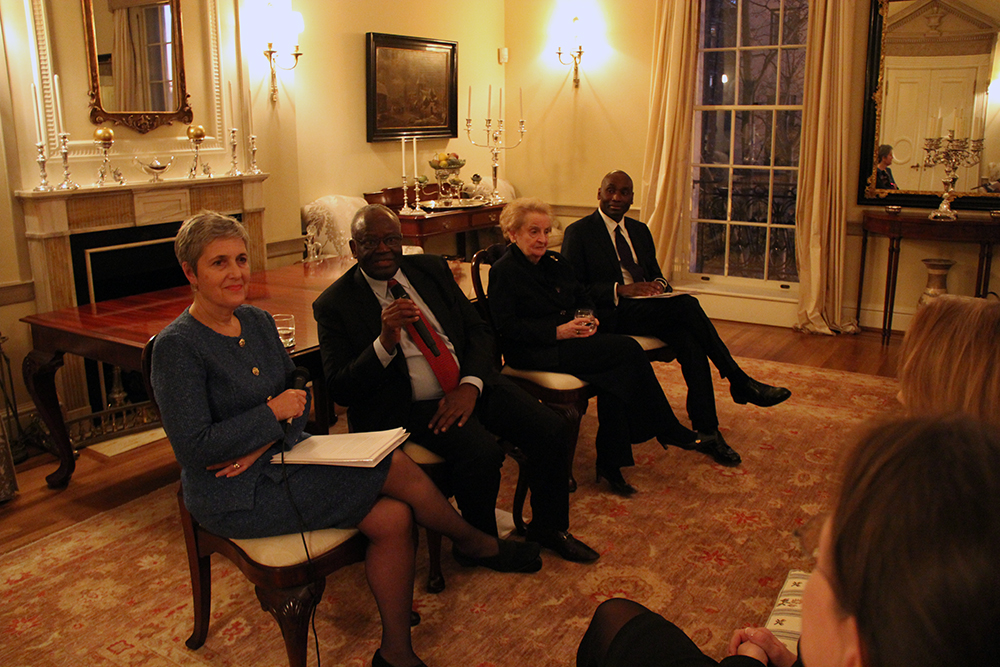They were welcomed to the residence of the Dutch Ambassador by the Acting Deputy Chief of Mission, Joanne Balfoort, who noted that the partnership between the convening organizations was in the tradition of long-standing Dutch-American cooperation, and that it was particularly timely for the Netherlands given its pursuit of a UN Security Council seat.
Ellen Laipson (President, The Stimson Center) and Dr. Abiodun Williams (President, The Hague Institute) led a moderated discussion with the Commission co-chairs, Secretary Madeleine Albright and Prof. Ibrahim Gambari. The co-chairs stressed the cross-disciplinary nature of the work of the Commission, which will examine contemporary global challenges through the prism of security and justice.

Secretary Albright argued that even while elements of the UN are “shopworn,” it remains an “amazing organization which must be used and revived.” She highlighted the particular challenge of working with non-state actors, many of whom have more power than UN Member States. Prof. Gambari agreed with the need to form broad coalitions, especially for conflict management, noting the success of joint peacekeeping missions. He also advised that coalitions should be sought “in unlikely places,” using the effectiveness of both the Commonwealth and the AU in the Nigerian case as an example.
A lively discussion followed with the invited guests, which provoked many compliments about the decision to launch the Commission and the innovative way in which it will approach its work. Speakers encouraged the Commission to continue making innovative linkages, and to encourage the UN system to do the same in order to break out of silos. A specific example was the relationship between the “Geneva” human rights mechanisms and the “New York” bodies (UNGA and especially UNSC). Prof. Gambari highlighted the Third Committee’s referral of North Korea to the UNSC as an encouraging example of how the system can potentially work more effectively.
The co-chairs engaged the audience on the issue of private sector actors, with one audience member asked how investors could be encouraged to take actions conducive to promoting justice. This was an area in which Sec. Albright has experience, both through her meetings with the U.S. private sector as Secretary of State and in her current activities.
Other speakers encouraged the Commission to build on the work of the post-2015 development process, embracing a “moment of redefinition” and emphasizing accountability. As the Commission will report approximately a year before the next UN Secretary-General is selected, the Commission was also advised to consider ways in which the nomination of the next SG can be undertaken more transparently, with specific consideration of gender equality. There was debate around whether the rotation principle for the SG’s appointment is outmoded, but like the issue of UNSC reform, it was suggested that the Commission will have to consider what reforms are “ripe” for action.
The evening concluded with a reception at The President Woodrow Wilson House, hosted by the organization’s Executive Director, Robert Enholm.

